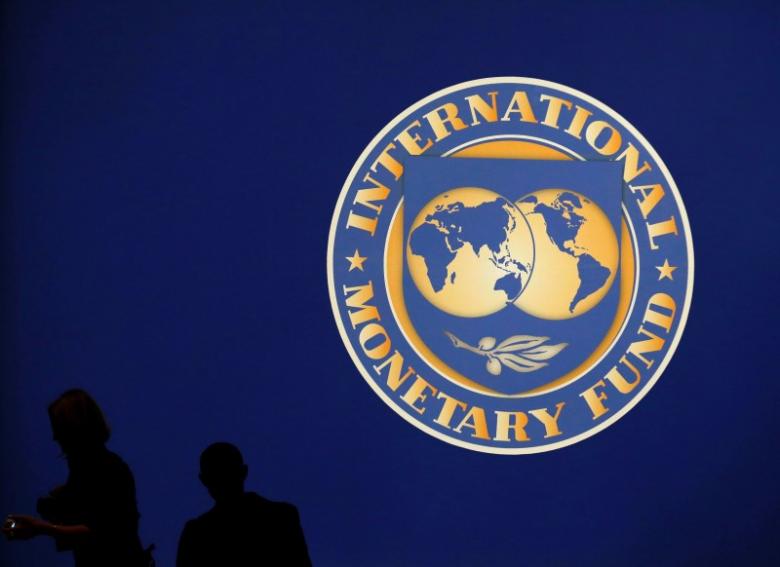
The IMF once again sought significant devaluation of the Pakistani rupee against the US dollar to curb external sector challenges, as it said that foreign exchange reserves have already fallen “below a comfortable level”.
Pakistan can treble per capita income by reducing fertility
The IMF released on Thursday the Article-IV consultation report on the state of the economy that showed that there was a disagreement between it and Pakistani authorities over a number of issues. They had divergent views on the external sector vulnerabilities, slowing fiscal consolidation and structural reforms.
The IMF staff stressed that reversing the recent decline in foreign exchange reserves and allowing for greater exchange rate flexibility are needed to rebuild external buffers, which are below adequate levels.
It said that Pakistan’s real effective exchange rate is overvalued in the range of 10 to 20%, seeking “greater exchange rate flexibility, fiscal adjustment, and structural reforms” to correct the imbalance. The fund advocated that greater exchange rate flexibility would strengthen Pakistan’s competitiveness, which has been affected by real effective exchange appreciation.
The IMF said that the exchange rate continued to remain stable against the US dollar, supported by the State Bank of Pakistan’s (SBP) foreign exchange interventions, and further appreciated in real effective terms 6% during this fiscal year. Cumulatively, Pakistan’s real effective exchange rate appreciated 18% over the past three years, according to the IMF assessment.
“Resumption of accumulation of reserves - including through allowing downward exchange rate flexibility - is needed to further strengthen buffers while also supporting competitiveness,” it advised. Prudent monetary policy and greater exchange rate flexibility will be key, to preserve low inflation and re-build external buffers.
Pakistan is now a $300-billion economy
However, the IMF said that Pakistani authorities’ own assessment suggested significantly lower currency overvaluation. In addition, Pakistan viewed reserves as adequate as they cover more than three months of imports.
After an end of the $6.2 billion IMF programme in September last year, Pakistan’s external account has deteriorated at a rapid pace, exposing the hollowness of reforms under the three-year programme. The current account deficit has already widened to $10.6 billion, which is more than double the assessment of the IMF and Pakistan for the fiscal year ended on June 30. The IMF said that the structure of financial account of Pakistan showed reliance on debt issuance rather than on Foreign Direct Investment flows, which have been on a declining trend over the last decade.
“The pace of fiscal consolidation has slowed, public debt remains high, and mobilisation of tax revenue needs to be further strengthened,” it added. The IMF said that external vulnerabilities have increased with a widening current account deficit and rising medium-term external repayment obligations linked to the China-Pakistan Economic Corridor (CPEC) and other large investment projects.
Foreign exchange reserves have declined to $16.1 billion since the end of the EFF-supported programme and “remain below comfortable levels”. The $16.1 billion reserves are sufficient to finance only 3.4 months of imports. These reserves are inclusive of $3.6 billion that the SBP obtained through derivative position. The IMF said that $3.6 billion forward position could put additional pressure on reserves.
The IMF assessment showed that fiscal consolidation in Pakistan slowed substantially in fiscal year 2016-17. It added that the fiscal year 2017-18 budget is also subject to risks and reaching the deficit target will likely require significant additional revenue measures during the course of the year.
It advised Pakistan that gradual fiscal consolidation should continue through the medium-term to address debt-related vulnerabilities. A stronger consolidation in fiscal year 2017-18 than planned in the budget, in line with the deficit target under the revised FRDL Act, would have been preferable, it said.
The IMF said that public debt and fiscal deficit are projected to be above the ceilings set in the Fiscal Responsibility and Debt Limitation (FRDL) Act. It added that Pakistan will face increasing government and CPEC-related external repayment obligations, and external financing needs are projected to increase to nearly 7.5% of GDP over the medium-term, highlighting the need for macroeconomic and structural policies supporting competitiveness.
Domestic risks could arise from political polarisation in the pre-election period and security issues. In the staff’s view, fiscal pressures could rise during the period leading up to the mid-2018 general elections, and growth-supporting reforms could slow.
On the structural front, progress in electricity sector reforms has been mixed, with a renewed build-up in circular debt; and financial losses of ailing public sector enterprises (PSEs) have continued. The IMF staff stressed the need to strengthen DISCOs’ performance and adjust end-consumer tariffs to reflect higher input costs, also in view of upcoming increases in generation capacity.
Published in The Express Tribune, July 14th, 2017.
Like Business on Facebook, follow @TribuneBiz on Twitter to stay informed and join in the conversation.






1719053250-0/BeFunky-collage-(5)1719053250-0-270x192.webp)










COMMENTS (5)
Comments are moderated and generally will be posted if they are on-topic and not abusive.
For more information, please see our Comments FAQ